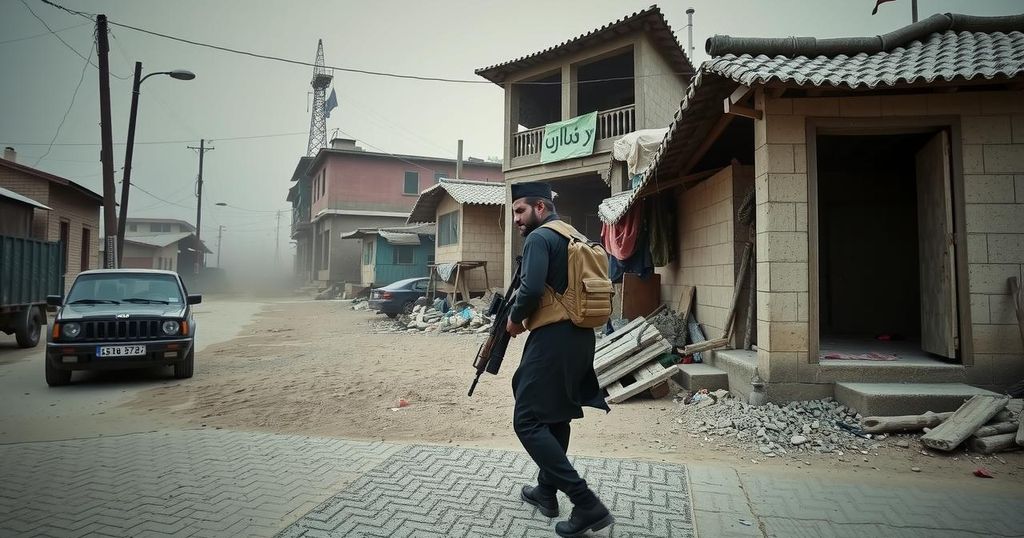Taliban Vows Retaliation Following Deadly Pakistani Air Strikes in Paktika Province
Pakistani air strikes in Afghanistan’s Paktika province killed at least 46 individuals, escalating tensions between the Taliban and Pakistan, which claims to target terrorist hideouts. The Taliban denounced the strikes as aggression, pledging retaliation, while local residents reported significant civilian casualties, including children.
At least 46 individuals have reportedly been killed in a series of air strikes conducted by Pakistan in Afghanistan’s Paktika province, as confirmed by a Taliban government spokesperson. The air strikes, which allegedly targeted ‘terrorist hideouts,’ have escalated tensions along the contested border between the two nations, following a pattern of increased hostilities since the Taliban assumed power in 2021. Taliban officials described the attacks as ‘barbaric’ and a blatant act of aggression, vowing to retaliate against such incursions into Afghan territory.
The bombardment occurred across four areas in Barmal district, leading to casualties predominantly among women and children, with six additional wounded individuals, also primarily minors. A resident named Maleel detailed the devastation, indicating that a single family lost 18 members during the bombardment due to a strike on their home. Taliban spokesperson Zabihullah Mujahid stated that the attacks constituted an infringement on Afghanistan’s sovereignty, prompting an outcry from the defense ministry, which labeled the strikes cowardly and in violation of international norms.
The Pakistani military, in defense of its operations, has claimed their actions were aimed at combating terrorist elements that threaten their national security. A senior Pakistani security official confirmed that the strikes utilized aerial assets, including drones and jets, to target perceived militant sites. This incident has further exacerbated the already tenuous relations between Kabul and Islamabad, particularly following a recent uptick in militant activity linked to the Pakistani Taliban, known as Tehreek-e-Taliban Pakistan (TTP).
The TTP has been accused of exploiting the porous border between Afghanistan and Pakistan to launch attacks within Pakistani territory. Pakistani authorities have alleged that the Afghan Taliban has been harboring TTP fighters, which has been staunchly denied by Kabul. A UN Security Council report indicated there could be approximately 6,500 TTP fighters in Afghanistan, yet the Taliban reportedly does not classify the TTP as a terrorist organization. This complex situation raises significant concerns over regional security and stability as both nations grapple with escalating violence and humanitarian implications stemming from these conflicts.
The escalating conflict between Afghanistan and Pakistan primarily stems from the resurgence of the Taliban in Afghanistan in 2021, which has been accompanied by renewed militant activities in Pakistan’s border regions. Both countries have accused one another of harboring militant groups that conduct cross-border attacks, thereby perpetuating a cycle of violence and retaliatory air strikes. The border region has often been a hotbed for various terrorist factions, including the Pakistani Taliban, complicating diplomatic relations between Islamabad and Kabul.
The recent air strikes by Pakistan in Afghanistan leading to numerous civilian casualties have prompted a strong reaction from the Taliban government, which has vowed to retaliate. This incident underscores the deteriorating relationship between Afghanistan and Pakistan, fueled by mutual accusations of harboring militants and a persistent atmosphere of violence in the border regions. Continued aggression from both sides poses challenges not only to bilateral relations but also to regional stability.
Original Source: www.france24.com








Post Comment